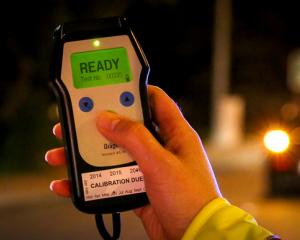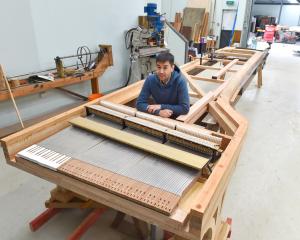Figures released by council chief executive Paul Orders yesterday showed the number of council staff had dropped to 665 full-time equivalents (FTEs), down from 681 in July last year, shaving $634,000 off the council's annual remuneration bill.
The reduction was the result of restructuring since Mr Orders' arrival, and included the departure last year of two members of the executive management team - Grant Strang and Graeme Hall.
It also included small numbers of job losses in other areas, including the marketing and communications, building control, administration, libraries, parking services, finance, Dunedin Centre and Visitor Centre teams.
Most were the result of natural attrition, but six staff - including Messrs Strang and Hall - had together received redundancy payouts totalling $306,400.
Mr Orders told the Otago Daily Times the reductions were just the start of an expected gradual decline in staff numbers, as council managers faced up to new spending constraints.
"However you cut it, this organisation has to go through a period of change," he said.
Councillors had instructed staff to prepare budgets that required rates increases of no more than 5% for the 2012-13 financial year, followed by 4% in 2013-14 and 3% in 2014-15.
The first target had been met - so far, at least - with a draft 4.9% increase forecast, but savings of $3.2 million still needed to be found for 2013-14, followed by a further $2.7 million for the following year, Mr Orders said.
As a result, Mr Orders had launched an organisation-wide efficiency drive designed to trim costs where possible, while protecting existing service levels.
"That's the primary work of senior management here. That's what we are turning our attention to," he said.
One key was to address the expansion of the council's staffing size over the last decade, which had seen the number of council employees climb steadily from 593 FTEs in 2003 to 687 in mid-2010, he said.
The council's remuneration bill stood at $47.2 million in the 2011-12 year, which represented 23% of total council spending.
Mr Orders said that percentage spend was "right at the national average" compared with other local authorities across New Zealand.
However, the natural attrition of staff in Dunedin would be used "wherever possible" to reduce the overall size of the organisation.
Managers wanting new staff would face tough questioning and be expected to demonstrate how additional staff would contribute to overall efficiency, Mr Orders said.
"The general trend will be a reduction in [staff] over time, and that's already started happening."
The efficiency drive would continue, with major reviews of the council's building control, libraries and ICT divisions beginning "imminently", followed by other council departments, Mr Orders said.
The building control review, being led by council operations general manager Tony Avery, was expected to identify "quite significant" potential savings, Mr Orders said.
Mr Avery said the review would scrutinise every aspect of the unit's work, and aimed to reduce costs by 20%, although the exact mix of reductions was yet to be determined.
He was also reviewing the significant amounts spent on some roading and water and waste services projects, which could lead to more design and tendering work being carried out in-house by the council.
That would require extra staff and costs, but would be offset by a reduced reliance on external consultants to do the work, meaning overall savings of $250,000 a year could result in roading alone, he said.
Mr Orders said a review had also scrutinised the council's "establishment posts", which included all staff positions deemed necessary for the organisation and funded, whether occupied or left vacant.
That had resulted in a drop from 735 to 688 posts, and future reviews were expected to bring further reductions, he said.
Mr Orders said the council's previous investments in capital projects, together with extra responsibilities from central government, had been key drivers pushing council staff numbers up over the last decade.
The council now faced a new environment, with debt-driven fiscal constraints meaning reduced capital spending plans, together with suggestions of new central government restrictions on council spending.
Together with other factors, such as a reduced annual dividend from Dunedin City Holdings Ltd, that left the council with "no option" but to find year-on-year savings and reduce operational costs.
"There's no getting away from it," Mr Orders said.
However, a "slash and burn approach" to council staffing, or the setting of an artificial staffing cap, before all reviews were completed risked damaging staff morale and eroding service levels, he warned.
"The approach we are taking is a measured approach."
DCC staffing
• 16 staff gone since late last year.
•Six received final payouts totalling $306,400; the rest through natural attrition.
• Staff count down from 681 FTE in mid-2011 to 665 now.
• Cost-cutting reviews planned for all other departments, beginning with building control, libraries and ICT spending.
• Gradual decline in staff numbers expected to continue.












